Premium Only Content

Professor Carlos Blanco on the turbulent political landscape of Venezuela.
Professor Blanco, with his keen insights, sheds light on the increasing isolation of Venezuelan President Maduro from his ideological allies due to questionable electoral practices. He notes, "Some of the ideological friends of Maduro in Venezuela are taking distance from him due to the electoral conditions, the rigged elections that Maduro wants to have this July."
As tensions mount, international voices like Petro and Lula call for democratic integrity, highlighting the urgency of the situation. Professor Blanco captures this sentiment, saying, "Petro declared that it was an undemocratic coup to stop participating in the elections." This reflects a growing disenchantment with Maduro's governance, not just domestically but internationally.
Amidst these political shifts, there's a discernible fracture in the once solid leftist coalition in Latin America that was tightly knit during Chavez's presidency. "The coalition, the leftist coalition in Latin America that was very, very tight with Chavez, under Chavez presidency in Venezuela, is now getting a lot of (division)," Blanco explains. This fragmentation is significant, signaling a possible realignment of political forces across the region.
Professor Blanco points out a crucial difference in how these leftist governments manage their authority compared to Venezuela. He remarks, "Although some of these leftist governments in Latin America are in the way of a kind of authoritarian rule like the Mexican president, they keep institutions and the institutions of those countries are independent." This independence of institutions marks a stark contrast to the manipulation seen in Venezuela, where the judiciary, controlled by Maduro, actively suppresses opposition, as seen in the disqualification of Maria Corina Machado. "Maduro disqualified, through the general comptroller and the judiciary, her participation... and the Supreme Court, controlled by Maduro, said that the disqualification was right," Blanco recounts, highlighting the lack of judicial independence in Venezuela.
The international community's response has been marked by sanctions led by the United States and the European Union, aiming to pressure the Venezuelan government towards democratic norms. "The United States imposed sanctions, and also Europe, the European Union imposed two types of sanctions," notes Blanco. These sanctions underscore the global stakes involved and the international push for a resolution to the Venezuelan crisis.
The dire situation in Venezuela is not just a political crisis but a humanitarian one, with significant portions of the country under the control of criminal gangs and guerrillas. "Venezuela at this moment, is a devastated nation. Most of its territory is occupied by criminal gangs, guerrillas from Colombia, illegal groups that try to take the minerals of the south portion of Venezuela," explains Blanco. This chaos has led to a massive exodus of Venezuelans seeking refuge and stability elsewhere.
Despite these overwhelming challenges, there remains a beacon of hope in the form of opposition leader Maria Corina Machado, who garners significant popular support, much to the chagrin of Maduro. "Every time Maria Corina goes to a town, a city, there are hundreds and thousands of people with her. That's a situation that is unbearable for Maduro," says Blanco. Her presence and popularity underscore the desire among Venezuelans for change and a return to democratic norms.
-
 LIVE
LIVE
SpartakusLIVE
7 hours ago$1,000 Pistol Challenge || #1 ENTERTAINER of The EONS Eradicates BOREDOM
1,109 watching -
 2:33:37
2:33:37
TimcastIRL
4 hours agoTrump Orders Review of Smithsonian For Being Woke & Out of Control | Timcast IRL
136K46 -
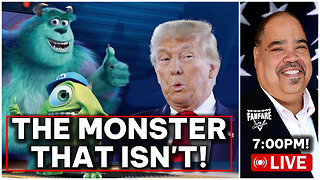 3:09:10
3:09:10
Barry Cunningham
7 hours agoPRESIDENT TRUMP HAS TAKEN THE MONSTER AWAY FROM THE LEFT! HORROR STORIES WON'T WORK ANYMORE!
57.2K59 -
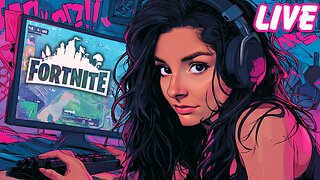 1:29:55
1:29:55
WickedVirtue
2 hours agoLate Night Fortnite w/ Friends
13.3K -
 LIVE
LIVE
This is the Ray Gaming
2 hours ago $0.01 earnedCould you be? Would you be? Won't you be my RAYBOR? | Rumble Premium Creator
51 watching -
 1:46:52
1:46:52
JahBlessGames
3 hours ago🎉Come een' and come tru' - VIBES | MUSIC | GAMES
15.1K -
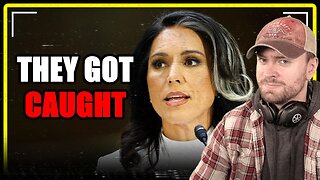 38:47
38:47
MattMorseTV
5 hours ago $1.10 earned🔴Tulsi just CLEANED HOUSE.🔴
43.7K83 -
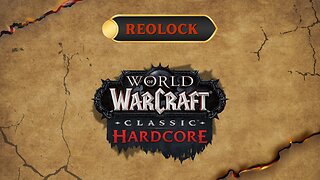
Reolock
6 hours agoWoW Classic Hardcore | WE'RE BACK!!
12.2K -
 3:46:13
3:46:13
SynthTrax & DJ Cheezus Livestreams
8 hours agoShell Shock Live - The Scorched Earth Remake/Upgrade - 4pm PST / 7pm EST - RUMBLE GAMING
34.4K -
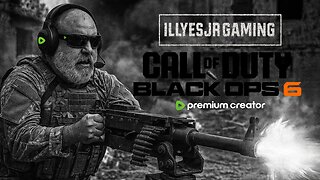 2:56:57
2:56:57
Illyes Jr Gaming
4 hours agoBack to Black .....Ops 6 w/ ILLYESJRGAMING
21.3K1